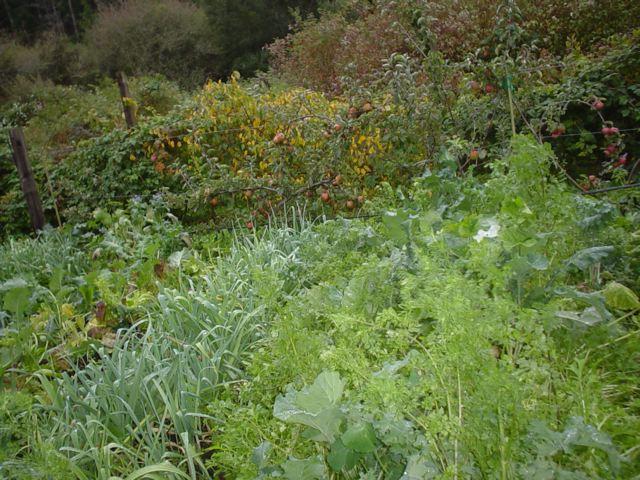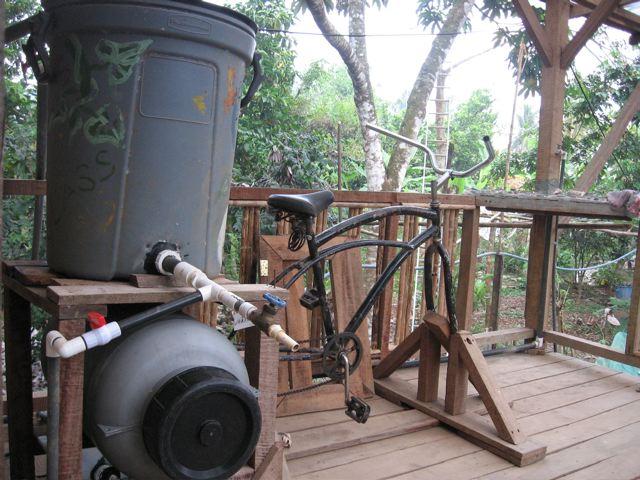
Stephen Brooks is the co-founder of Kopali Organics and a correspondent for Planet Green’s G Word .
Combine the words “permanent” and “culture,” subtract a few unnecessary letters and you end up with one amazingly efficient term - “Permaculture.” How does that roll off your tongue? You have just derived another one of those brilliantly synergistic terms, a single word that signifies an entity bigger and more productive than its individual pieces. And this is exactly what the term Permaculture set out to do - Permaculture doesn’t tell you what to do, but tells you how to think in a systematic and logical way that is efficient for you as well as the planet.
Permaculture ,coined by Tasmanian Author and Scientist Bill Mollison in the mid 1970’s is often defined as an approach to designing human settlements. It specifically defines the development of perennial agricultural systems that mimic the structure and interrelationship found in natural ecologies. It’s these very natural ecologies that have worked so well for thousands of years on this planet and permaculture teaches that these successes should be our greatest teachers. Bill Mollison watched as important decisions for his island homeland were being made by the Australian government dealing with water treatment, garbage disposal and food production and was appalled by their short sightedness. These are critical decisions to our survival as a species and they are being made by people who may not have what is best for us and for our planet at the forefront of their minds.
I first learned about permaculture in 1998 after I had already been living for several years off the grid in Costa Rica. In fact, I was already learning and applying the key principles of permaculture learned from the Costa Rican native and indigenous people long before I had ever even heard the term itself. I quickly ran off to take a three-week intensive permaculture design course offered on the Big Island of Hawaii. It really rocked my world. It was more than just learning about the principals of designing community. It was about learning these principals while actually living in community where these very design decisions were in practice. We had a bicycle powered laundry machine and were planting things according to how much we used them and how much attention they needed. For example, large fruit trees that only need to be visited a few times a year to prune and harvest were planted further from our house and delicate salads were planted in areas nearby that received lots of attention. It just made sense.

I often compare taking a permaculture design course to a computer that recently had an anti-virus program installed. From that moment on no matter what that computer does, it is going to have to pass through the anti-virus test. I find a permaculture course to be like that for any person. After taking the intensive course, no matter what decisions that person makes, or whatever system he/she designs, it is going to pass through the deep ecological test in their brain instilled by taking the course. It’s funny because it all just seems so simple and obvious. The ethics of permaculture are: care for earth, care for people and distribution of surplus. Seems pretty straightforward. Permaculture is not directly about agriculture but efficient design in general and can be applied to all aspects of life.
The way I personally describe permaculture is: How can we meet our goals and while using less energy. It is often assumed that by the word energy I mean coal, gas or electricity, but this includes our own physical, mental and financial energy as well. People all over the world mostly have very similar goals when it really comes down it. We strive for happiness through things like a comfortable home, nice friends and family, abundant good food and an all around level of sufficiency. So how can we meet this lofty goal as a species? I honestly believe if permaculture were taught in grade school we would be way closer to achieving this and people would be living a much fuller and more rewarding life. Through thoughtful and efficient design, responsible use of resources and the permaculture ethic, care for Earth deeply imbedded into our corporations and government’ constitutions the world would be a much cleaner and happier place to live.
Stephen Brooks is a jungle tropical fruit farmer in Costa Rica, the co-founder of Kopali Organics and is the Food Field Reporter on Planet Green's G Word.








